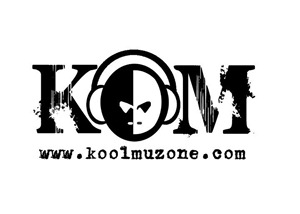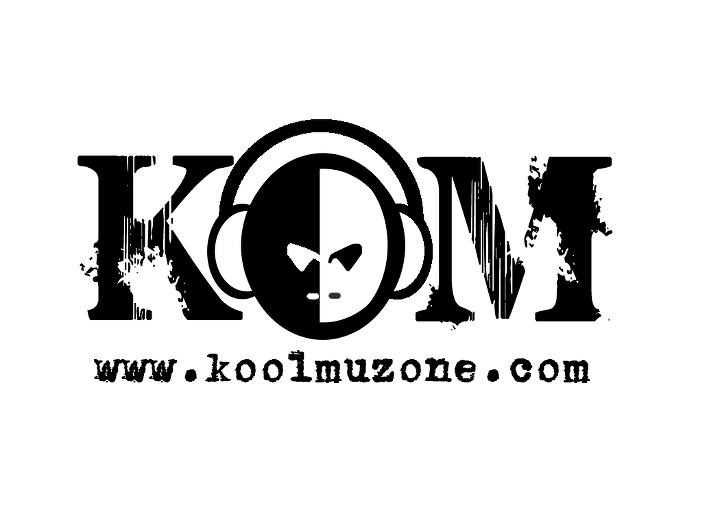
It appears that EMI Pakistan and KoolMuzone have long been in dispute, which Hamad thoroughly explained in his post, however, their latest row appeared after Koolmuzone embedded a YouTube video in one of their posts.
EMI Pakistan asked KoolMuzone to remove the embedded YouTube video from blog as its rights were protected by EMI Pakistan to which KoolMuzone denied.
Here’s the communication that happened between both the parties:
KoolMuzone: “I can’t embed a YouTube video uploaded by EMI. Is that what you’re telling me?”
EMI Pakistan: “You are not well aware of copyrights laws and constantly violating them at least in EMI case! Enough has been told you and but no point fine!“.
I had to call EMI Pakistan to know their viewpoint and they believe that this video used by KoolMuzone is owned/copyrighted by EMI Pakistan. They don’t want KoolMuzone to use this video in whatever possible way.
EMI said that they didn’t threaten KoolMuzone, instead they wanted a resolution of the dispute, but KoolMuzone (according to EMI) isn’t in mood of removing the video.
When I mentioned EMI about YouTube’s TOS, as it allows publishers to embed a YouTube video if original owner has not disabled external embedding option, EMI Pakistan said that any product (be it a video, audio, YouTube channel or whatever) being a property of EMI Pakistan should not be used by anyone unless consented.
Apparently EMI Pakistan is unable to understand that there is no legal way of prohibiting anyone to use/reproduce content shared on a public forum, such as YouTube.
Here are YouTube TOS on this:
“You also hereby grant each user of the Service a non-exclusive license to access your Content through the Service, and to use, reproduce, distribute, display and perform such Content as permitted through the functionality of the Service and under these Terms of Service.”
It merits mentioning here that I advised EMI Pakistan to disable external embedding of their YouTube videos, but they can’t. As they want to allow certain blogs/publishers to use their videos and to disallow others, especially KoolMuzone.
As per legal experts’ understanding what EMI is asking from KoolMuzone is based on ethical grounds, and can’t be challenged under the law. They said that EMI has a right to have different opinion on this but threatening a blogger on such grounds is purely illogical and can stretch the dispute.
This also reminds us of insufficient or no bloggers’ rights and dire need of a body that could protect bloggers from such threats.


























I think that EMI has a valid point. The purpose of sharing videos on youtube is to build viewership for their own channel so that they can promote their own brand and products. Embedding is allowed so that individuals can share video on their profiles, personal blogs, twitter, etc. They certainly wouldn’t like it to be used by a thirdparty publisher to promote their video.
Secondly, they also have a right to deny an individual to publish their content, despite the license. They have the right to revoke rights of usage in any form upon their will.
I personally think that it is ethical for web publishers to remove the content if the copyright owner or publisher requests them. Despite the fact that how content is licensed.
Can EMI Pakistan go legal on this?
Yes they can go legal and can restrict the blogger from publishing or even commenting on there video…..
Its like a civil suit that someone is stalking you and so court issues a restraining order against that person and if the person (blogger in this case) voilates that he would be subjected to the penalities which can vary from imprisonment upto 10 years or fines if a claim is filed against them and they could even ask the court to ban.the blog or simply close it so my advice to the blogger is that he should stop wasting his energy and time on fighting emi and moveon ….undoubtly justice is served seldom in our country but its better that he backs out
— Yes they can go legal and can restrict the blogger from publishing or even commenting on there video…..
Please pay attention. No blogger has published the video. EMI is the only publisher, and they have uploaded it to Youtube and ALLOWED everyone to embed it. Embedding is not the same as publishing.
So under what “legal” situation can they restrict anyone from embedding it?
— so my advice to the blogger is that he should stop wasting his energy and time on fighting emi and moveon
Oh yes, when a large company does the wrong thing we should just roll over and let them do what they want! Excellent advice!
EMI is bs’ing, they clearly don’t understand the TOS of youtube.
It’s the rights of the webmaster to be able to embed a publicly available video. it’s not illeagal in any way.
I don’t see any sense in the argument.
Disable the f’ing embedding option if you don’t want ppl to embed it.
As part of the youtube TOS, channel owner agrees to give youtube a sublicensable license. Which means Youtube reserves the right to sublicense the content to its users. While EMI still says the owner of the content, but youtube licenses it all the users unless the part of functionality is disabled by the channel owner (disabling embeding).
Also, they do want third party site to embed it, just not me. This is getting personal, for God knows what.
Yes, they can. In most legal systems of the world, the original publisher can revoke rights of an individual/organization/group without changing the main license. Since they have the proof now that they have informed and requested the individual/website to remove the content which they did not comply they can go to the court and it will be just a five minute hearing before any court in the world will give a ruling in their favor.
Also, I’m all up for mediation as long as the requests are made without threatening me of legal notices.
Reading the entire post i think EMI needs to understand that Koolmuzone has been a driving force in Pakistani Music industry and has been instrumental in the sucess of many artists you cannot turn away any kind of marketing and publicity you are an idiot if you do .. especially if all they are doing is embedding your video .. the content is being spread with your name and everything … dunno man .. a bund of monkey’s running the show i guess as with everything else in Pakistan
Video apke ho embed koi aur karay credit to video owner ko he jata hay. video name playlink/end time/link to sab video owner kay channel ko he jatay hain na.
Embed per shukar karo warna aisay log bhi hain jo videos download ker kay apnay channel main upload ker letay hain :D
Copyrights are completely overrated. I can get a DVD with all of EMI Pakistans music at any store. EMI should first shut that down before going after this website.
ProPakistani Is Getting biased Here. Why You are favourng the Hammad Dar. If EMI is requesting to delete that content thn Hammad should delete it.
Aik alag se Topic create krne ki kya zarurat hai. ‘Pakistani Blogger Threatened for
Embedding a YouTube Video’. Heading to aisi hai Jese Kisi ko Jaan ki dhamki di ja rhi ho. Totaly biased. U should also listem frm EMI PAKISTAN’s SIDE.
Bahi EMI ka version liya tu hay
Wese aamir baat sach hai mein bhy yehy samjha tha ke life threat ka seen hai yahan aaya tu pata chala legal notice hai …..n ager isko threat kehte tu phr tu mujhe ptcl walun ne bheji aisi dhamkiyan kaho tu copy bhej dun
— If EMI is requesting to delete that content thn Hammad should delete it.
Main point: Hammad does not have a copy of the content. So what should he delete?
It seems You see things like you want to see as per your wish.
From legal aspect even in Pakistan, write it DOWN, that this case is not challengeable, on following Technical grounds:
1. EMI Pakistan (incase it hosted video on Youtube), permitted Youtube a License, where it has been agreed by Uploader (EMI) to allow public sharing & can be embeded on any website.
2. In this case Koolmuzone is EMBEDING a video Hosted on YOUTUBE Servers & NOT EMI’s servers, thus youtube openly allows anyone to stream its video, EMI in no way can object on a single website UNLESS = They Sign an Agreement with Youtube, and asks them to block specific url’s from streaming (which is obviously not possible.
3. If EMI is so mad about singling out one Website or Blog, than they MUST PULL out videos from YOUTUBE and host videos on their own Private servers with their own Terms & Conditions.
Ask any Judge (who understands things technically) and i bet EMI is acting more like MAFIA. You simply cannot Bypass the Agreement with Youtube.
Koolmuzone –> Youtube (license) —-> EMI
So in this case, Koolmuzone is using Youtube’s content (due to fact that Youtube got license to stream it, and its userbade). Thus EMI will need to deal with Youtube first instead of Koolmuzone.
Looks like some people don’t understand what “embedding” means in Youtube sense. Embedding means: add two or three lines of code on your web page. When some visitor goes to your page, their browser (NOT YOUR SERVER) gets the video from youtube and displays it.
It is like saying “here is a box on my webpage. Fill it with a video.” and then giving them directions to find the video.
Nouman said
— In most legal systems of the world, the original publisher can revoke rights of an individual/organization/group without changing the main license.
I don’t believe you. Honestly. It makes no sense. For example, if I give some product for distribution and sale to Metro or any other large store, can I prevent some people from buying it from there? No! Anyone who can shop from Metro can legally buy my product.
If you can point to any legal system in the world that allows what you say, SHOW ME AN EXAMPLE that is similar to embedding in youtube.
@Shahid Saleem: These are very interesting points you raised and I am glad you did. This will help other users understand why EMI’s claim would get instant approval from any court of law.
Firstly, Copyright is not trademark, or patent. Please look up the differences among these terms.
Embedding is not an excuse and no matter what youtube license says, the original author of the content (in this case video) retains all the rights to the content. These rights include the right to exclude a user to gain the same privilege as other users and revoke permission for that specific user.
Since YouTube has the license that the uploader agreed to, they can not be held accountable to where a video is being displayed. However, the copyright owner can approach the websites on their own and request them for removal without disabling embed and without revoking youtube’s permissions and license of other users.
This license actually safeguards youtube from becoming a party in dispute between uploader and a third party. Even though third party has the permission (according to license) to embed it. But this permission becomes void as soon as the original uploader sends a first legal notification asking the infringing website to remove it.
This legal notice does not need to be served through specific means it could even be a tweet asking the infringer to remove the content. If the infringer has acknowledged receiving any such message and still not removed the content. They are violating the copyright law and hence they could be taken to a court of law.
Copyright infringement is a punishable crime in Pakistan. No matter where the content is created, or published, the original author can file a complaint in any Pakistani court as well as US courts since all servers involved in this case reside in the United States.
Hi Noumaan,
You missed out a very interesting word from TOS of Youtube which states
You hereby grant YouTube a worldwide, non-exclusive, royalty-free, sublicenseable and transferable license.
The word sub-licenseable and transferable license means once the content is uploaded on YouTube, YouTube reserves the right to sub-license the content to others, to me, in this particular case.
Also just to clarify more, copyright means “right to copy” while in this particular case no copy of the original content is made.
@Hamad firstly, I totally believe that EMI is crazy. I was just talking about the legal aspects of the issue.
Yes you are right that the license grants youtube these rights. You are also right that youtube can sublicense and their license is transferable.
My point solely relies on the owner’s rights. In the copyright laws, owner’s rights precede all other rights.
The youtube license only protects YouTube that is why you can see that many large broadcasters and content producers have failed to sue youtube over infringement. However, they have sued other websites successfully. I can’t find a link right now, but if you can research I am sure you will find example cases.
“Copy” here does not mean copying in the literal sense. Copy means the contents of an original work. For example when Live tv broadcasts are aired from other continents they are not copied but broadcasted to different channels and each channel has to buy the rights from the original rights holder.
When we embed a video we are actually broadcasting it using youtube servers, for the viewers of our websites so that they can view the video without leaving our website. This is called relaying a broadcast.
Even though many publishers choose youtube license, but this problem has been raised many times. Like for example, a person uploads a video about religion and then they end up finding their video on some inappropriate site. They can turn off embeding but it will turn the embedding off on all other websites. So they can send individual notification to website owner, informing them that their right to broadcast the video has been revoked.
According to youtube license they can’t send notice to youtube or google, however legally they can send a notice to youtube or google asking them to disable embed on a particular website. This is in youtube’s features request list for a long time but Google is denying people this feature for extra costs and the management problems it will create. If Google adds this feature publishers can revoke permissions from youtube interface by adding the URL where they dont want their video to be embedded.
Another good example are videos restricted by geographical regions. Even though these videos are licensed under the Standard YouTube License but people from certain countries can not watch these videos. This is an example that publishers rights precede the YouTube license and YouTube license only protects youtube not other broadcasters.
You still don’t get it. Amazing.
— In the copyright laws, owner’s rights precede all other rights.
By agreeing to the license, the owner has granted Kool the right to embed the video. Why is that so hard for you to understand? EMI WILLINGLY AND KNOWINGLY let ALL people embed. So why cry foul and over what?
— I can’t find a link right now, but if you can research I am sure you will find example cases.
Not gonna do your research for you. If you know of specific cases that are SAME as EMI’s current situation, then post them.
— For example when Live tv broadcasts are aired from other continents they are not copied but broadcasted to different channels and each channel has to buy the rights from the original rights holder.
Sigh. More proof that you are not getting it. Let me ask you: what are they buying the rights for? To rebroadcast? To relay a live broadcast? If so, they are REPEATING a broadcast. Even if the technology allows them to do it without copying to a hard drive or to do it live (with 0 second delay) or anything like they, they are still REPEATING something. How can you relay without a copy?
When you embed a video, you do not repeat or copy anything.
— When we embed a video we are actually broadcasting it using youtube servers, for the viewers of our websites so that they can view the video without leaving our website. This is called relaying a broadcast.
NO, IT IS NOT LIKE THAT AT ALL. When you embed a youtube video on your site, you are telling the VIEWER of your website where to get the video. 0% of the video goes through your servers. THERE IS NO RELAYING. It all happens on the browsers end.
— So they can send individual notification to website owner, informing them that their right to broadcast the video has been revoked.
Examples?
— Another good example are videos restricted by geographical regions.
No, that is a very dumb example. Restrictions by region is something publishers on Youtube can do, just like they can turn off and on embedding. These restrictions are the uploader’s CHOICE, not Youtube’s choice.
Please please please enter the 21st century and understand the technology. Your “laws” do not cover this situation.
does this mean if I had bought movie DVD, SW CD etc. then original copyright owner can come and ask me to return that DVD/CD to shop as they do not want me to use their product?
come on , how could this be true?
Man I was going to post a long reply and then the site wouldn’t work for me.
— Firstly, Copyright is not trademark, or patent. Please look up the differences among these terms.
Well aware of that, old chap. Have copyrighted some work & know what the Berne convention says, have applied for trademarks for a company, have worked with someone who had patents. Well aware of the differences.
I ask you to do the same: embedding is not copying. Please look up the differences between those two terms.
— Embedding is not an excuse and no matter what youtube license says, the original author of the content (in this case video) retains all the rights to the content.
You keep talking about copyrights and the rights content owners have but fail to understand one central point: KOOL HAS NOT COPIED ONE SECOND OF VIDEO OR MUSIC FROM EMI.
NO COPYING HAS OCCURRED.
Embedding from youtube is not an “excuse”. It is the heart of the matter and you fail to understand it. To put it another way, if EMI does not want Kool to EMBED the video on his site, then it is THE SAME as EMI not wanting any of Kool’s users to VIEW the video on Youtube. It is the SAME CONTENT no matter where the viewer is vewing it: 100% always on Youtube, and 100% given to Youtube by EMI. The content is never transferred to Kool’s servers.
Secondly, you cannot say “no matter what youtube license says”. EMI entered into an agreement with youtube, and one of those terms was that EMI had to grant some rights to Youtube. Not GIVE AWAY rights, but GRANT. And they did so willingly. And who are you to say their agreement is not legally binding? If EMI did not understand what was going on, then perhaps EMI needs better lawyers?
— These rights include the right to exclude a user to gain the same privilege as other users and revoke permission for that specific user.
100% agree. Also, they are free to put the video on some other video sharing site and enable their friendly blogs (but not Kool) to embed it. That way they can legally go after kool if he embeds it.
HOWEVER.
By agreeing to Youtube’s terms, they ALLOWED all Youtube users (both who go to the website or view embedded videos on other sites) the same level of access (ie, ALL ACCESS). They gave ALL youtube users the same level of access. And Kool is not abusing any rights or taking more advantage of the agreement than other users. If I want, I can embed the video on my site, too. Any Youtube user can.
If EMI doesn’t like that, too bad. They agreed to it. They are free to turn off embedding if they want.
So, Kool is not taking advantage of some extra privilege. He has the same privilege as other Youtube users, and EMI has granted ALL Youtube users the same rights.
— However, the copyright owner can approach the websites on their own and request them for removal without disabling embed and without revoking youtube’s permissions and license of other users.
Here again you don’t understand embedding. EMI will request the users to remove WHAT, exactly? You keep talking about copyrights (“copy” “rights”) and removal requests and you forget that the website owners DO NOT HAVE A COPY OF THE VIDEO.
— This legal notice does not need to be served through specific means it could even be a tweet asking the infringer to remove the content.
Infringer??? Infringer implies infringing on rights. What right as Kool infringed upon when he hasn’t even copied the video???
— They are violating the copyright law and hence they could be taken to a court of law.
Please tell me which clause of Pakistani copyright law is relevant IN THIS CURRENT SITUATION.
Dear Shahid, I am sorry if you found my comment offensive in any way. It was not my intention to doubt that you know less than me or anyone else. I am sure you are very talented and know your way around. :)
LIVE AND LET OTHERS LIVE IS BECOMING VERY RARE THESE DAYS SO AS WITH OUR LEGAL RULES
— LIVE AND LET OTHERS LIVE IS BECOMING VERY RARE THESE DAYS SO AS WITH OUR LEGAL RULES
Heh funny comment from someone who sells counterfeit handbags. Or are your copied designs legal? :):):)
Noumaan Yaqoob bhai, this is what one signs at the time of upload … I think it is legal to use this video as long as it was served by youtube …. EMI can not ask any one to not use it from youtube…. if they do not like this then they should remove this video from youtube ….
“For clarity, you retain all of your ownership rights in your Content. However, by submitting Content to YouTube, you hereby grant YouTube a worldwide, non-exclusive, royalty-free, sublicenseable and transferable license to use, reproduce, distribute, prepare derivative works of, display, and perform the Content in connection with the Service and YouTube’s (and its successors’ and affiliates’) business, including without limitation for promoting and redistributing part or all of the Service (and derivative works thereof) in any media formats and through any media channels. You also hereby grant each user of the Service a non-exclusive license to access your Content through the Service, and to use, reproduce, distribute, display and perform such Content as permitted through the functionality of the Service and under these Terms of Service. The above licenses granted by you in video Content you submit to the Service terminate within a commercially reasonable time after you remove or delete your videos from the Service. You understand and agree, however, that YouTube may retain, but not display, distribute, or perform, server copies of your videos that have been removed or deleted. The above licenses granted by you in user comments you submit are perpetual and irrevocable.”
I cant find any problem in embedding a video from you tube with on a blogging website. You Tube is considered to be an open platform where every one can share, download or embedded video’s according to their needs. Then why is this EMI Pakistan started behaving in this manner…. ?
EMI Pakistan is totally wrong on this clime. that’s the conclusion.
Hammad Dar Ko Apni bari bhul gai jab Mastikorner.com walo ko call kar k Threatened karta tha :D jesi karni wasy barni :D looool
Dear Readers,
Ask yourselves, Who really owns the internet?
The answer is simple: no one actually owns the Internet, and no single person, organization or government controls the Internet in its entirety. It is more of a concept than an actual tangible entity, and the Internet relies on a physical infrastructure that connects networks to other networks. There are many organizations, corporations, governments, schools, private citizens and service providers that all own pieces of the infrastructure that make up the internet, but there is no one entity that owns it all.
Talk about SOPA, eh!
He can embed as owner/copyright holder has not enabled the option available in youtube to disable embedding. EMI is using their own logic but they don’t even know how youtube works. They are simply putting blame on poor guy without knowing their part of responsibility. Now if I embed their videos on my site, they can’t do anything at all even if they go to international court of crimes, not because I am not in Pakistan, but for the fact that they accepted Youtube TOS. EMI update yourself before doing this “jahiloo wali harkatian”. Thank you.
lolz this is the meter between blogger and youtube or youtube and EMI. EMI should ask to youtube. Normally we d’t read all term and condition, policies sirf agree per click kar ke shuru ho jatey hain.
hahaha way to go. hahah u call that a threat?? man at times u guys are just importance seekers. you should give a proper heading to the content u write .
I must say EMI is gone crazy like a rising star, trying to be act like a AAG TV. @Hamad Dar buddy, do you forget what AAG and Geo did with blogs who publishes their content?
@Nouman Embedding a video on page its not a copy right, because embedding is not copying! @Shahid .. great explanation :)
@Hamad once again, don’t waste your time with EMI, you already screwed them with your article!